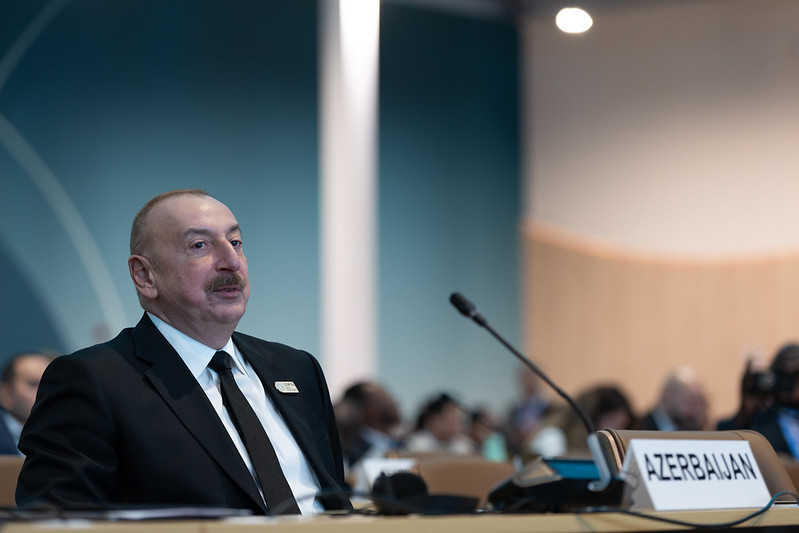Dutch hit back at “neo-colonial” claim by Azerbaijan at Cop29

The Netherlands has sent a strongly worded rebuttal to Azerbaijan after its president Ilham Aliyev accused the Netherlands and France of maintaining a “neocolonial” relationship with their small island states.
Both countries also “brutally suppress” the island populations and people living in Dutch and French overseas dependencies in the Caribbean and Pacific ocean are “the hardest hit by climate change,” Aliyev said on the second day of the UN climate conference.
World leaders are in Azerbaijan’s capital Baku for the Cop29 conference, although many western prime ministers and presidents, including Dick Schoof and Emmanuel Macron, are missing.
“The so-called overseas territories of France and Netherlands, particularly in the Caribbean and the Pacific, are among the most severely impacted” by climate change, Aliyev told small island leaders at COP29. “The voices of these communities are often brutally suppressed by the regimes.”
The Dutch foreign affairs ministry issued a sharp retort to Aliyev on social media. The kingdom of the Netherlands is made up of four “autonomous and legally equal countries: Curacao, Aruba, Sint Maarten and the Netherlands, which includes the special municipalities Bonaire, Saba and Sint Eustatius”, the statement said.
“This is the result of referenda and consultations with the islands. Democratic elections are held periodically on every one of the six islands.” The Netherlands, the statement points out, “has always been an active proponent of the interests of small island states” with regards to climate change.
In September, Greenpeace was given the green light to take the Dutch government to court over the lack of action to protect the Caribbean island of Bonaire from rising sea levels.
The government did say last November that Bonaire and the two other special local authority areas, Saba and Sint Eustatius, would get their own climate plan this year. But Greenpeace and the locals say “urgent action” is needed and the measures which have been taken to date are “far from adequate”.
Researchers at Amsterdam’s VU University said earlier that Bonaire is particularly vulnerable to climate change. Part of the island will disappear as sea levels rise and the coral reef, which protects the island against flooding, may also be destroyed.
Thank you for donating to DutchNews.nl.
We could not provide the Dutch News service, and keep it free of charge, without the generous support of our readers. Your donations allow us to report on issues you tell us matter, and provide you with a summary of the most important Dutch news each day.
Make a donation